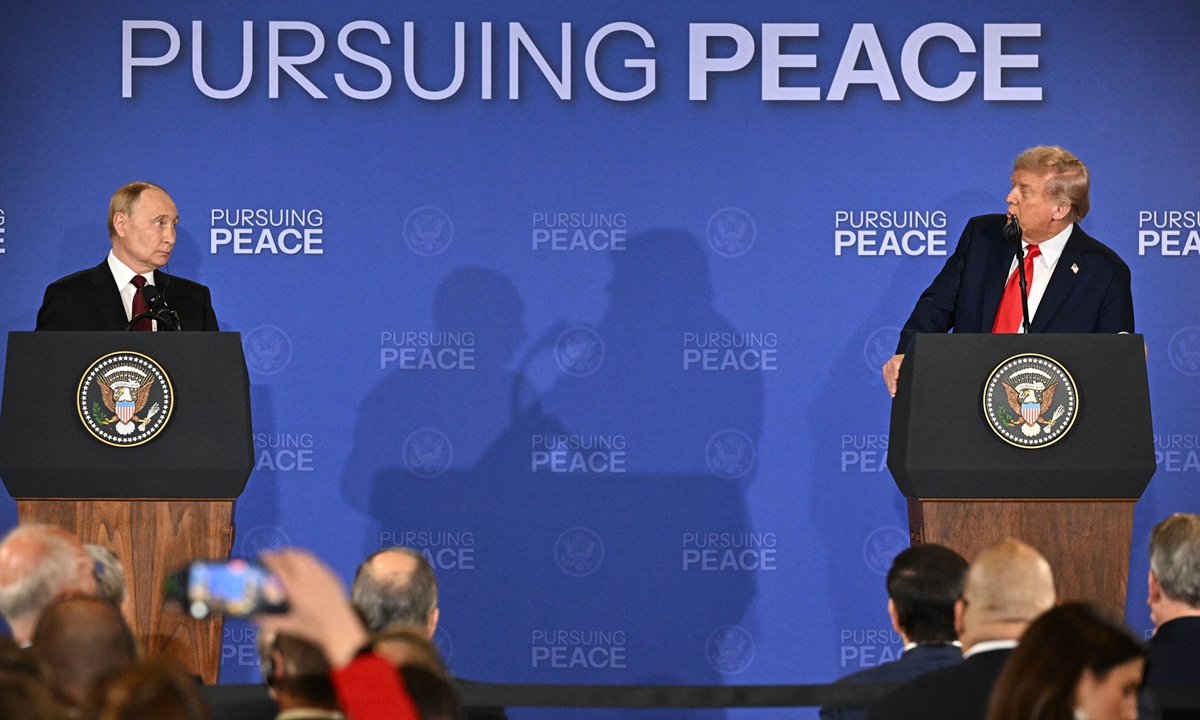China supports all efforts conducive to the peaceful settlement of the Ukraine crisis, and is glad to see Russia and the US keep in contact, improve their relations, and advance the political settlement of the crisis, Chinese Foreign Ministry spokesperson Lin Jian said on Friday.
Lin made the remarks in response to media inquiries about US President Donald Trump’s announcement that he would meet with Russian President Vladimir Putin in Hungary in the coming weeks, a remark made ahead of his meeting with Ukrainian President Volodymyr Zelensky in Washington.
Trump revealed on his social media platform Truth Social that he had held a telephone conversation with Putin and agreed to meet the Russian leader in Budapest, Hungary.
Later, during an Oval Office event, Trump told reporters he would meet Putin “within two weeks or so”, describing the phone call as “very good” and “very productive,” according to CNN.
The Trump-Putin call comes ahead of a meeting between the US leader and Zelensky on Friday. Trump says the two will discuss his conversation with Putin, according to the BBC.
Trump added he will update Zelensky on what was discussed with Putin. Trump goes on to suggest that he would hold “separate but equal” meetings with each leader, the BBC reported.
A Chinese expert said the upcoming meeting marks the latest high-level contact between the US and Russia following prior dialogue and could help the parties explore possible solutions to the ongoing conflict. However, he cautioned that a fundamental breakthrough remains unlikely in the short term.
The previous summit held in Anchorage, Alaska, two months ago showed both the Russian and US sides’ sincerity and consensus. The US government also seems eager to play a role in resolving the Ukraine crisis, Wang Xiaoquan, an expert with the Institute of Russian, Eastern European and Central Asian Studies of the Chinese Academy of Social Sciences, told the Global Times on Friday.
Wang noted that deep-seated disagreements—particularly over territorial issues—make a substantive resolution difficult to achieve soon. “The territorial claims of Russia and Ukraine overlap significantly, and it is hard to foresee either side making major concessions in the short term,” he said.
The conflict, now entering its fourth year, has caused severe destruction and fatigue among both soldiers and civilians in Russia and Ukraine, Wang said. “Neither side appears ready for a full cease-fire, but there may be room for compromise on smaller issues to facilitate temporary truce arrangements.”
He also emphasized the significance of holding the meeting in Europe. “The crisis itself is unfolding in Europe, and the fact that the talks will be held there reflects the desire of all parties to create a better atmosphere and conditions for substantive progress in the future,” Wang said.
Hungarian Prime Minister Viktor Orbán posted a series of messages on social media platform X, calling the planned summit “great news for the peace-loving people of the world.”
China has repeatedly expressed its support for a peaceful resolution of the Ukraine crisis. Earlier, at a UN Security Council High-level Briefing on September 23, Geng Shuang, Deputy Permanent Representative of China to the UN, said that since day one of the crisis, China has been upholding an objective and impartial position, calling for a ceasefire and cessation of hostilities and advocating for peace talks towards a political settlement.
“China stands ready to work with the international community and continue our constructive role for the early political settlement of the crisis,” Geng said.




